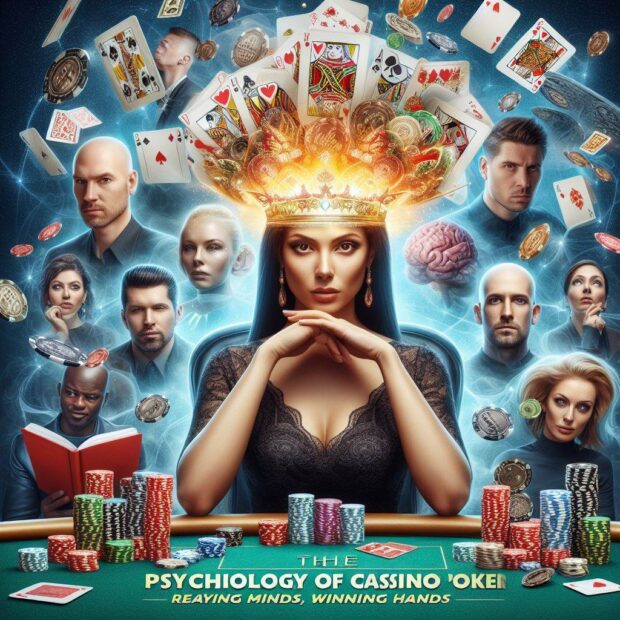The Psychology of Casino Poker: Reading Minds, Winning Hands

Reading Minds Winning Hands
- Brief overview of poker’s popularity and its psychological components.
- Importance of understanding psychology in improving poker gameplay.
The Fundamentals of Poker Psychology
- Psychological Warfare: Introduce the concept of poker as a game of incomplete information where psychological warfare plays a key role.
- Understanding Your Opponents: The importance of reading tells, patterns, Reading Minds, Winning Hands and behaviors.
- Self-awareness: Knowing your own tendencies and how they can be perceived or exploited.
Reading Minds at the Poker Table
- Tells: Define what tells are (physical, verbal, and pattern tells) and how they can give away a player’s hand strength or intentions.
- Pattern Recognition: How experienced players use past behaviors to predict future actions.
- Emotional Intelligence: The ability to manage one’s own emotions and the skill to understand and influence the emotions of opponents.
Winning Hands with Psychological Tactics
- Bluffing: The psychology behind successful bluffing and how to execute it convincingly.
- Semi-Bluffing: Combining the elements of bluffing with the potential to improve.
- Pressure Points: Identifying and exploiting moments of weakness or indecision in opponents.
Psychological Resilience in Poker
- Tilt Management: Strategies for maintaining composure and avoiding tilt.
- Mental Endurance: Building the psychological endurance to withstand long sessions and high-stress situations.
- Adapting to Different Players: The importance of flexibility and adaptation in the face of diverse psychological strategies.
Advanced Psychological Concepts
- Game Theory Optimal (GTO) Play: An introduction to GTO and its psychological implications in balancing one’s play.
- Meta-Game: Understanding the game beyond the cards—how your game today affects tomorrow’s game.
- Psychological Traps: Common mental traps players fall into (e.g., overconfidence, underestimating opponents) and how to avoid them.
Case Studies: Psychological Battles from Poker History
- Analyze famous poker hands or tournaments where psychological play made a decisive impact.
- Lessons learned from these encounters.
Practical Applications: Improving Your Psychological Game
- Exercises and practices for developing poker-related psychological skills.
- Incorporating psychology into your study and practice sessions.
Conclusion
- Recap of the importance of psychology in mastering casino poker.
- Encouragement to continue learning and applying psychological concepts in poker gameplay.
Additional Resources
- Books, online courses, and other resources for further study.
As you expand on each section, aim to provide examples, anecdotes, Reading Minds, Winning Hands and even simple exercises or questions to engage the reader and encourage them to think about their own poker play from a psychological perspective. Remember, the goal is to offer actionable insights that can be applied directly to their next game.
Baca Juga: Mastering the Bluff: Psychological Warfare at the Poker Table


